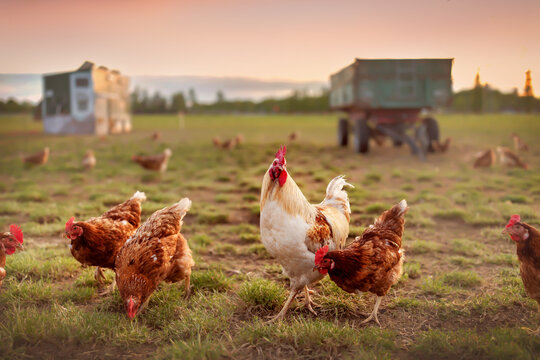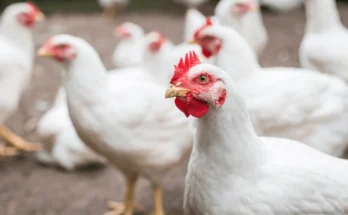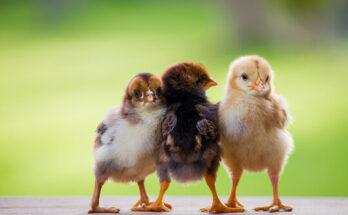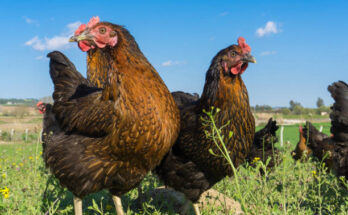Understanding the Reasons Behind Why Chickens Lose Their Feathers
Losing feathers is a common issue for chickens, and understanding the reasons why chickens loose their feathers is crucial for poultry farmers and animal enthusiasts. Feather loss can indicate underlying health issues, stress, dietary deficiencies, or environmental factors that need attention. In this blog post, we will delve into the various reasons why chickens lose their feathers, the impact it has on their well-being, and how poultry keepers can address and prevent this issue. By gaining insights into this topic, you’ll be better equipped to ensure the welfare and health of your feathered companions.
Natural Molting Process
Molting is a natural process in chickens that involves the shedding and regrowth of feathers. This essential cycle is influenced by various biological factors, including changes in daylight duration and hormonal shifts. If weather changes are happening and your chickens aren’t showing signs of distress, this is mostly likely the reason why chickens lose their feathers within your flock, and there isn’t anything to worry about.
Biological Reasons for Molting
Chickens typically molt in response to decreasing daylight as the seasons change. The decrease in daylight triggers an increase in the production of a hormone called prolactin, which in turn initiates the molting process. Additionally, as chickens age, they undergo molting as part of their natural growth cycle, usually occurring annually around the end of their second year.
Impact on Egg Production
During the molting period, chickens tend to divert their energy and nutrients towards feather regrowth, resulting in a temporary decline in egg laying. This decline in egg production is a typical occurrence during molting, as the chicken’s body prioritizes feather development over egg laying. It’s important for chicken owners to be aware of this natural process and provide additional care and support to their chickens during this period.
Understanding the natural molting process in chickens is essential for poultry owners to provide the necessary care and support to their flock as they transition through this natural cycle.

Health and Nutrition Factors
Feathers play a crucial role in a chicken’s health and well-being. A chicken’s feather loss can be influenced by various health and nutrition factors. Let’s delve into the primary factors contributing to feather loss in chickens.
Parasitic Infestations
External parasites like mites and lice can wreak havoc on a chicken’s feathers, leading to substantial feather loss. These tiny pests can cause irritation and discomfort, prompting chickens to engage in excessive preening and feather picking. Moreover, parasitic infestations can result in skin damage and anemia, ultimately affecting the chicken’s overall health. It’s vital to regularly inspect and treat chickens for parasites to prevent feather loss and mitigate potential health risks.
Nutritional Deficiencies
Proper nutrition is paramount for maintaining luscious feathers in chickens. Essential nutrients, particularly protein, play a pivotal role in the development and upkeep of feathers. Protein deficiency can lead to weak and brittle feathers, ultimately causing them to shed. Besides protein, vitamins and minerals like biotin, zinc, and copper are also essential for feather health. These nutrients contribute to feather strength and luster. Ensuring chickens are provided with a well-balanced diet is crucial in preventing nutritional deficiencies that may lead to feather loss.
By addressing and managing these health and nutritional factors, chicken owners can safeguard their feathered friends from undue feather loss and promote their overall well-being. We have a great guide on poultry nutrition here which covers the key elements of poultry nutritional and dietary needs here.
Stress and Environmental Factors
Stress and environmental conditions play a significant role in the well-being of chickens and can have a direct impact on their feather loss. Stress is a common reason why chickens lose their feathers, which can be a result of social and environmental issues which may be affecting your chickens.
Environmental Stressors
Environmental stressors, such as overcrowding and extreme temperatures, can greatly contribute to feather loss in chickens. Overcrowding within chicken coops can lead to increased stress levels and aggressive behavior, as well as higher levels of ammonia and carbon dioxide, all of which can contribute to feather loss. Additionally, extreme temperatures, whether too hot or too cold, can cause stress for chickens, leading to increased molting and feather damage.
Behavioral Issues
Aggressive pecking behavior among chickens is often a result of overcrowding or dominance struggles, leading to feather loss. When chickens are overcrowded, they may become stressed and exhibit aggressive behavior, resulting in pecking and pulling out each other’s feathers. Dominance struggles within a flock can exacerbate this behavior, as the dominant chickens may assert their authority by pecking and pulling the feathers of subordinate flock members. If you are new to owning chickens, you can find everything about pecking order here, which will explain your chicken’s behaviours and social interactions
In conclusion, understanding the influence of environmental stressors and behavioral issues on chickens is crucial in addressing and mitigating feather loss in poultry farming. By creating a comfortable and stress-free environment for chickens, feather loss can be minimized, ultimately improving the welfare of the birds and the overall quality of the flock.
Management and Treatment
Feather loss in chickens can often be managed and treated through a combination of effective strategies and interventions that enhance the birds’ overall well-being. By focusing on improved housing and environmental conditions, balanced nutrition, parasite control, and veterinary care, chicken owners can help address feather loss and support healthy feather regrowth.
Housing and Environmental Improvements
Creating an optimal living environment for chickens is crucial for minimizing feather loss and promoting their overall health. Adequate space, proper ventilation, and cleanliness are essential factors in chicken housing. When chickens are overcrowded, stressed, or exposed to extreme weather conditions, they are more likely to experience feather loss. Providing a clean, dry, and well-ventilated coop can help reduce environmental stressors and improve feather condition. Additionally, incorporating enrichments such as dust baths and perches can offer chickens opportunities for natural behaviors, reducing the likelihood of feather damage.
Nutritional Support and Supplements
Balanced nutrition plays a pivotal role in addressing feather loss and promoting healthy feather regrowth in chickens. A diet rich in protein, amino acids, vitamins, and minerals is vital for maintaining good feather condition. Supplementing their diet with essential nutrients such as omega-3 fatty acids, biotin, and methionine can support feather growth and improve overall plumage quality. Additionally, offering access to grit and oyster shell can aid in digestion and calcium absorption, contributing to robust feather development.
Parasite Control and Veterinary Care
Effective parasite control measures are essential for preventing feather loss in chickens. Regularly inspecting chickens for mites, lice, and other parasites, and promptly treating infestations, is crucial in preventing feather damage and discomfort for the birds. Seeking veterinary care is imperative when addressing feather loss attributed to underlying health issues. A veterinarian can conduct comprehensive examinations, diagnose potential illnesses, and recommend appropriate treatments to address the root cause of feather loss, ensuring the chickens’ overall well-being is prioritized.
By implementing these management and treatment strategies, chicken owners can take proactive steps to support feather health, address feather loss, and enhance the overall welfare of their flock.
Conclusion
In conclusion, feather loss in chickens can be attributed to various factors such as molting, parasites, stress, and nutritional deficiencies. It is essential for poultry farmers to proactively manage and care for their chickens to ensure optimal feather health and overall welfare. By addressing these key factors through proper nutrition, parasite control, stress reduction, and appropriate environmental conditions, poultry farmers can mitigate feather loss and promote the well-being of their flock. Prioritizing proactive management and care not only contributes to the physical appearance of the birds but also indicates a commitment to their overall health and productivity.



